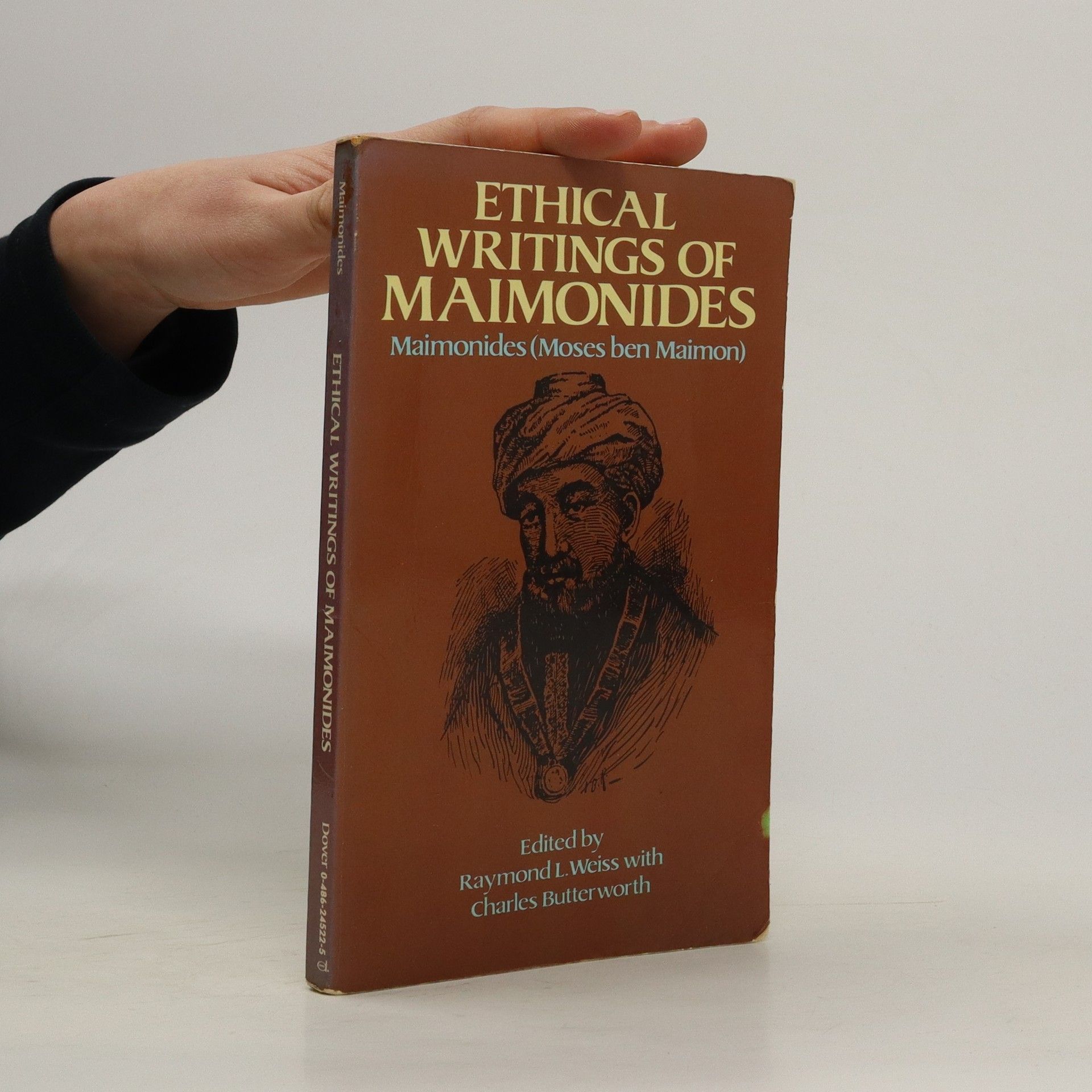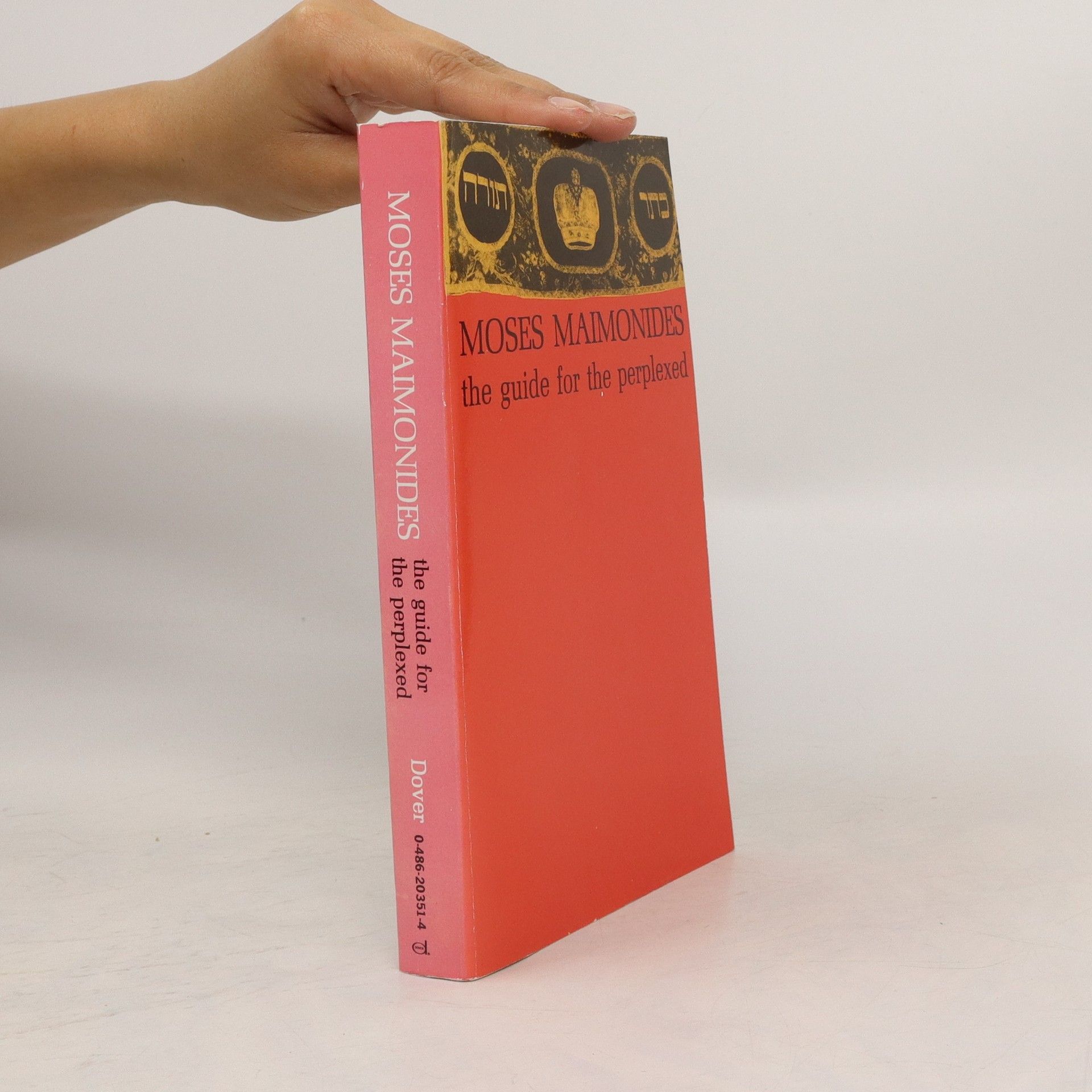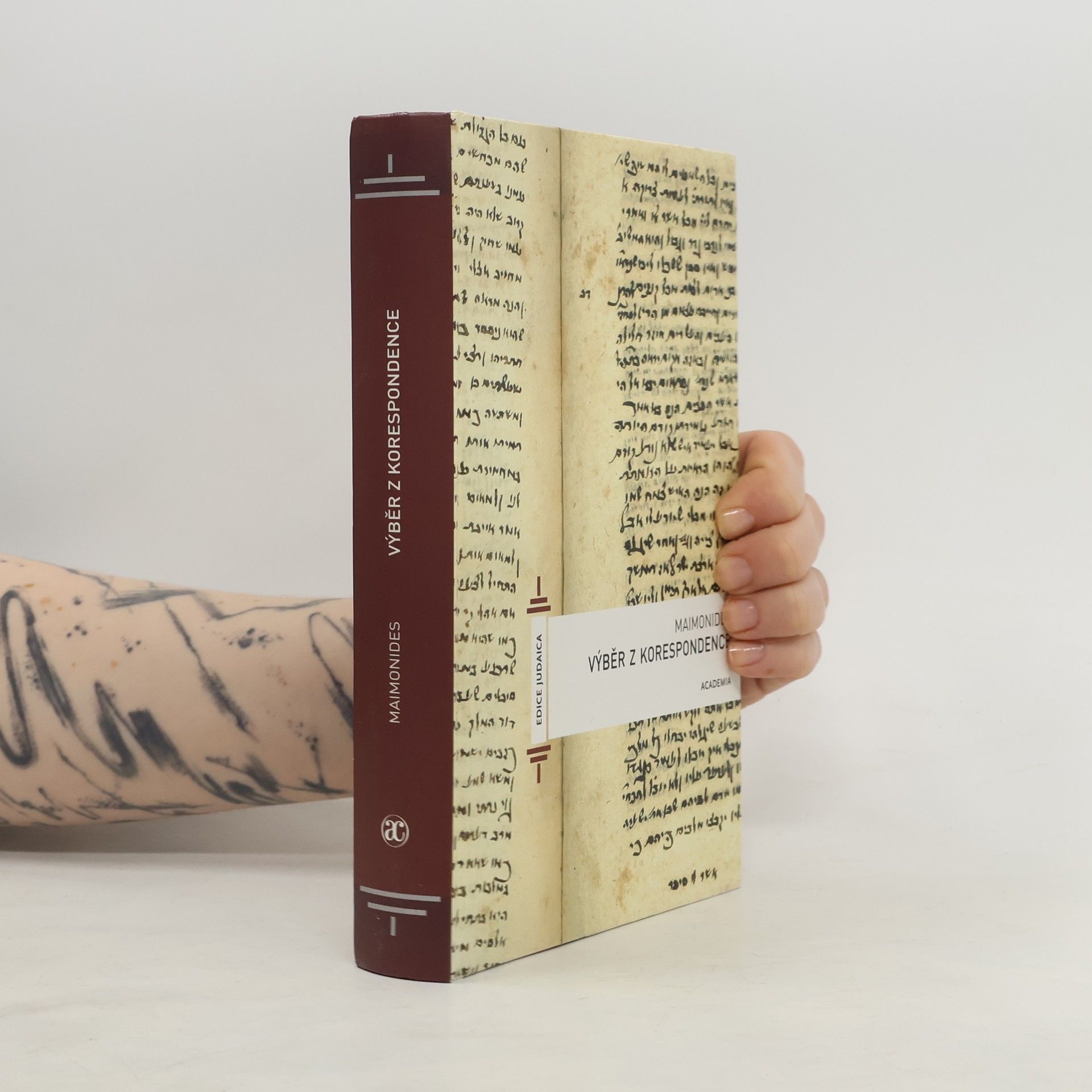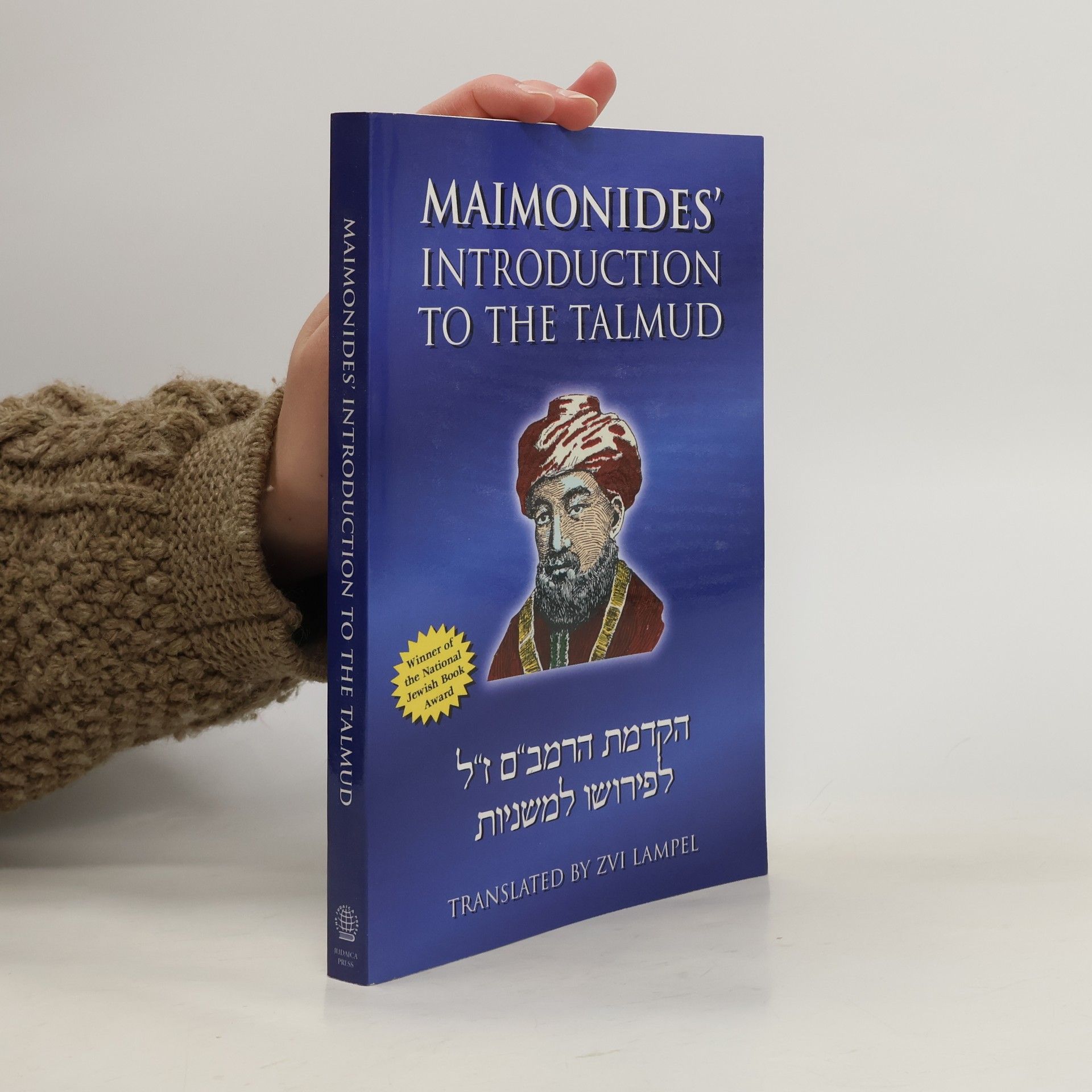In this book, Hermann Hedwig Bernard presents an overview of Jewish creed and ethics, drawing on selections from the Yad Hachazakah, a code of Jewish law compiled by Moses Maimonides in the 12th century. Bernard provides commentary on Maimonides' work and offers insights into the principles that have guided Jewish thought and practice throughout history.
Moshe ben Maimon Reihenfolge der Bücher (Chronologisch)
Moses ben Maimon, bekannt als Maimonides, war ein herausragender mittelalterlicher jüdischer Philosoph, Tora-Gelehrter und Arzt. Sein Werk befasst sich tiefgehend mit philosophischen und religiösen Texten, wobei er sich von mystischen Strömungen fernhielt und Poesie als reine Erfindung kritisierte. Trotz eines unruhigen Lebens, geprägt von Vertreibung und Exil, schuf Maimonides seine bahnbrechenden Werke unter oft schwierigen Umständen. Er war nicht nur ein bedeutender Denker, sondern auch ein angesehener Arzt, der sogar Herrschern diente.







The Guide of the Perplexed of Maimonides; Volume 1
- 466 Seiten
- 17 Lesestunden
The Guide of the Perplexed of Maimonides; Volume 3
- 362 Seiten
- 13 Lesestunden
This is a reproduction of a book published before 1923. This book may have occasional imperfections such as missing or blurred pages, poor pictures, errant marks, etc. that were either part of the original artifact, or were introduced by the scanning process. We believe this work is culturally important, and despite the imperfections, have elected to bring it back into print as part of our continuing commitment to the preservation of printed works worldwide. We appreciate your understanding of the imperfections in the preservation process, and hope you enjoy this valuable book.
The Guide for the Perplexed, Part 3
- 272 Seiten
- 10 Lesestunden
The Reasons of The Laws of Moses, From The
- 450 Seiten
- 16 Lesestunden
Culturally significant, this work offers a faithful reproduction of an original artifact, preserving its historical integrity. It includes original copyright references and library stamps, reflecting its importance in the knowledge base of civilization. This edition highlights the value of historical texts and their contributions to understanding cultural heritage.
Zo židovskej arabštiny a hebrejštiny přeložili, k vydaniu pripravili a úvodné štúdie napísali Daniel Boušek a Dita Rukriglová. Publikácia je reprezentatívnym výberom jedenástich listov židovského rabína, lekára a filozofa Mošeho ben Majmūna – Maimonida (1138 Córdoba – 1204 Fustāt). Najviac sú zastúpené texty s nábožensko-právnou tematikou (list o prenasledovaní, list do Jemenu, listy sudcom Jefetovi a Pinhasovi), ďalej kratšie filozofické traktáty (pojednanie o zmŕtvychvstaní, list o rozhodnutí hviezd) a tiež osobná korešpondencia (z listov Josefovi ben Jehudovi a Šmu’elu ibn Tibonovi).
On Asthma, Volume 2: Critical Editions of Hebrew and Latin Translations
- 798 Seiten
- 28 Lesestunden
Focusing on Maimonides' significant contributions to Jewish law and philosophy, this volume serves as a companion to his work "On Asthma." It features critical editions of three medieval Hebrew translations, including one by Samuel Benveniste and another by Joshua Shatibi, alongside two Latin translations by Giovanni da Capua and Armengaud Blaise. This scholarly edition highlights the historical context and the evolution of Maimonides' ideas through various translations, concluding with important updates to the first volume.
The Reasons Of The Laws Of Moses; From The More Nevochim Of Maimonides
- 456 Seiten
- 16 Lesestunden
The book is a facsimile reprint of a scarce antiquarian work, preserving its original content despite potential imperfections like marks and notations. It emphasizes the cultural significance of the text, reflecting a commitment to protecting and promoting literature through high-quality, accessible editions that honor the original work.
Maimonides' Introduction to the Talmud
A Translation of Maimonides Introduction to His Commentary on the Mishna With Complete Original Hebrew Text
- 288 Seiten
- 11 Lesestunden
This lucid and elegant English translation of Maimonides' introductory work to the Talmud has become a classic. Here Maimonides explains the origins, aims, methodology and spirit of the Talmud and delineates all the Rabbinic sages of the period. He covers such fundamental issues as the powers of the Rabbis to add to the original laws of the Torah, why dissensions from the accepted rulings of the Jewish law were permanently recorded in the Talmud, and the criteria for the determination of a true prophet. This edition features annotations, charts, indexes and a glossary, as well as Maimonides' complete original Hebrew text.Essential reading for any student of the Talmud!

